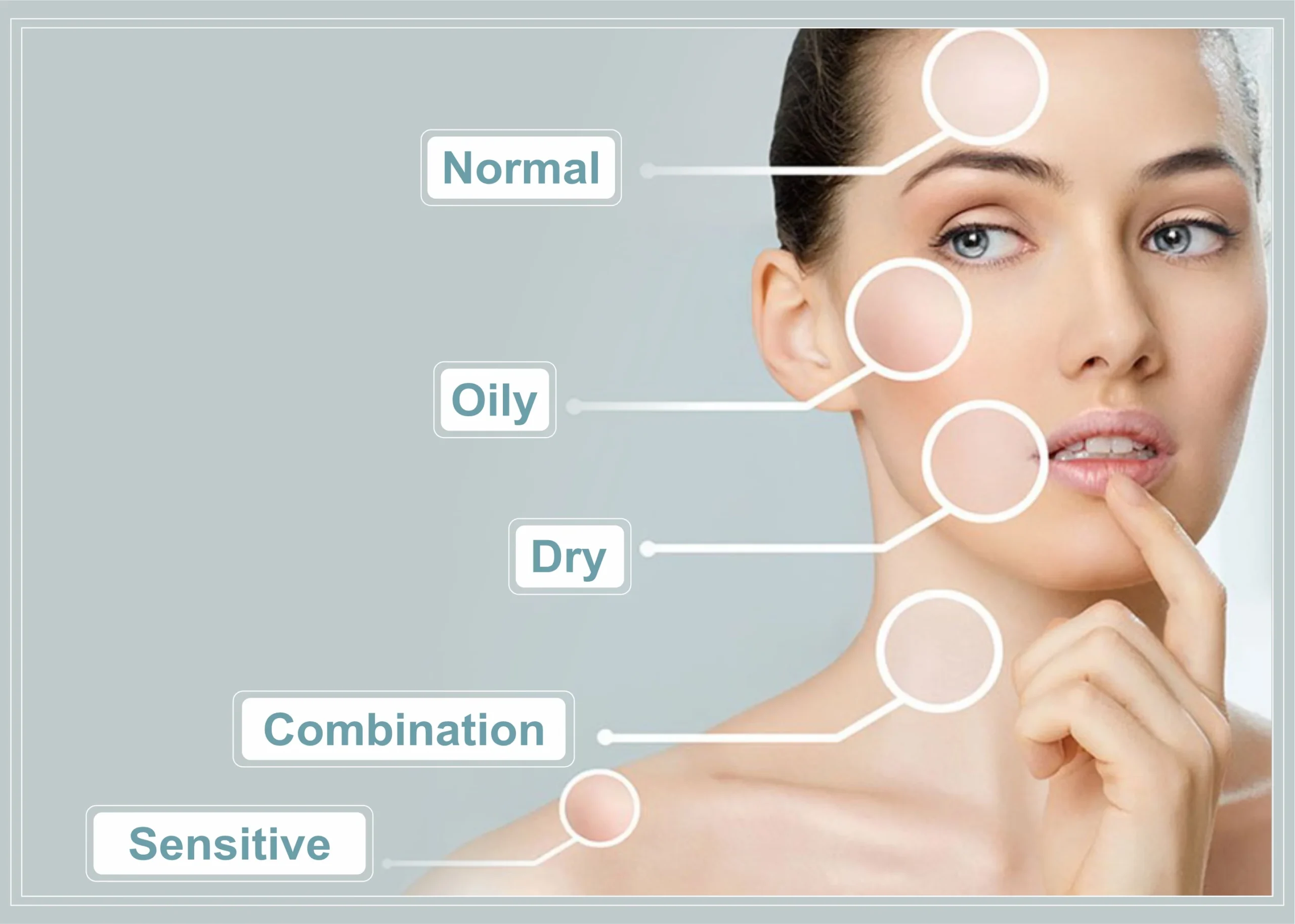In
In the realm of skincare products, discovering the ideal one can seem akin to pursuing the holy grail. Amidst countless options promising miracles, feeling overwhelmed is common. Yet, armed with insight, you can navigate this terrain effectively. This guide will explore skincare selection intricacies, from deciphering ingredient labels to seeking professional guidance.
Why choose best skincare product?
Selecting the best skincare products goes beyond mere cosmetic enhancement; it’s about nurturing the health and vitality of your skin. Your skin is the body’s largest organ, and it serves as a barrier against environmental pollutants, UV radiation, and other external stressors. Therefore, choosing products that support its function and maintain its integrity is paramount.
Quality skincare products are formulated with scientifically-backed ingredients that deliver tangible results. Whether you’re targeting fine lines, acne, dryness, or hyperpigmentation, selecting products with potent actives tailored to your specific concerns can make a significant difference. Moreover, the best skincare products undergo rigorous testing for safety and efficacy, ensuring that they deliver the promised benefits without causing harm.
Investing in premium skincare is an investment in self-care and self-confidence. When your skin looks and feels its best, it boosts your overall well-being and enhances your sense of self-esteem. By prioritizing quality over quantity and selecting products that align with your skin’s needs, you’re not only improving its appearance but also safeguarding its long-term health and resilience. So, take the time to research, experiment, and discover the best skincare regimen for you—it’s a decision your skin will thank you for.
Understanding Your Skin Type:
By identifying its unique characteristics, you can choose products that address its specific needs with precision.
1. Assess your skin’s behavior throughout the day to determine if it’s oily, dry, combination, or sensitive.
2. Consider factors like pore size, oil production, and reactivity to environmental stimuli to categorize your skin type accurately.
3. Recognize that skin type can change over time due to factors such as age, hormones, and seasonal variations.
4. Tailor your skincare routine to accommodate your skin type, selecting products formulated to address its specific concerns and maintain its balance.
5. Regularly reassess your skin type and adjust your skincare regimen accordingly to ensure optimal results and long-term skin health.

Deciphering Ingredient Labels:
Once you’ve determined your skin type, the next crucial step in your skincare product journey is deciphering the complex world of ingredient labels. Skincare products boast an extensive range of active components, each with its own unique set of benefits for the skin. From potent antioxidants that combat free radicals to hydrating ingredients that replenish moisture and gentle exfoliants that promote cell turnover, understanding the role of these key ingredients is essential for making informed decisions when selecting products.
By delving into the science behind skincare product, you can gain a deeper appreciation for how they work to address specific concerns and achieve desired results. Armed with this knowledge, you can confidently navigate the vast landscape of skincare offerings, ensuring that you choose products that are perfectly tailored to meet your individual needs and preferences.
Choosing the Right Formulation:
With an understanding of your skin type and preferred ingredients, it’s time to choose the right formulation for your skincare routine. Skincare products come in various textures and consistencies, including creams, serums, gels, and oils, each offering distinct benefits and application methods.
For oily or acne-prone skin, lightweight, non-comedogenic formulations such as gels or serums may be preferable, as they absorb quickly without clogging pores. Conversely, those with dry or mature skin may benefit from richer creams or oils to provide intense hydration and nourishment. Consider your preferences, lifestyle, and the climate in which you live when selecting a formulation that fits seamlessly into your daily routine.
1. Evaluate your skin’s needs and preferences to determine which formulation will best suit your routine, considering factors such as texture, consistency, and absorption rate.
2. Consider the climate and environmental conditions in which you live, as this can influence the type of formulation that will provide optimal benefits for your skin.
3. For oily or acne-prone skin, opt for lightweight, non-comedogenic formulations such as gels or serums that absorb quickly without clogging pores.
4. Dry or mature skin may benefit from richer formulations such as creams or oils, which provide intense hydration and nourishment to replenish moisture levels.
5. Combination skin requires a balanced approach, with products that address both oily and dry areas without exacerbating imbalances.
6. Choose formulations with active ingredients tailored to your skin concerns, such as hyaluronic acid for hydration, retinol for anti-aging, or salicylic acid for acne treatment.
7. Experiment with different formulations to find what works best for your skin, considering how they feel on the skin, their compatibility with other products, and their overall effectiveness.
8. Don’t be afraid to mix and match formulations within your skincare routine to cater to different needs, such as using a lightweight serum during the day and a richer cream at night for added nourishment.

Researching reviews and recommendations:
In the age of digital connectivity, access to product reviews and recommendations has never been easier. Take advantage of online resources, such as beauty blogs, forums, and social media platforms, to read firsthand experiences from other users. Look for reviews from individuals with similar skin types and concerns, as their insights can offer valuable guidance in finding the best skincare products for your needs.
Pay attention to mentions of skincare product and their associated benefits in reviews, as these can indicate the efficacy of specific formulations in addressing common skin issues. Additionally, seek out recommendations from trusted sources, such as dermatologists, estheticians, or skincare influencers, who can provide expert insights based on their knowledge and experience.
Testing and Patch-Testing:
Before fully committing to a new skincare product, it’s essential to conduct patch tests to assess for any adverse reactions or sensitivities. Many brands offer sample sizes or travel kits, allowing you to try products before making a larger investment. Alternatively, you can visit beauty counters or skincare clinics that offer complimentary consultations and product samples.
1. Conduct a patch test by applying a small amount of product to a discreet area to assess for any adverse reactions.
2. Monitor for signs of redness, itching, or irritation for at least 24 hours after application.
3. Patch-testing helps identify potential sensitivities or allergies before applying products to larger areas of the face or body.
4. Test new products one at a time to pinpoint any specific triggers for adverse reactions.
5. Consider patch-testing especially important for individuals with sensitive skin or a history of allergies.
6. Once patch-testing confirms compatibility, gradually introduce new products into your skincare routine to monitor long-term effects.

Seeking professional guidance:
Seeking professional guidance for skincare products offers a wealth of benefits beyond what self-research and trial-and-error can provide. Here are five compelling reasons why consulting with a dermatologist or skincare professional is a wise investment in your skin’s health:
1. Comprehensive Assessment:
Skincare professionals possess in-depth knowledge of dermatology and skincare science. They can conduct a thorough assessment of your skin, taking into account factors such as your skin type, concerns, medical history, and lifestyle. This holistic approach ensures that recommendations are tailored to your individual needs, optimizing the effectiveness of your skincare routine.
2. Personalized Recommendations:
No two skin types are alike, and what works for one person may not work for another. Skincare professionals can offer personalized recommendations based on your unique skin profile. Whether you’re dealing with acne, aging, hyperpigmentation, or sensitivity, they can recommend products and treatments specifically formulated to address your concerns while avoiding potential irritants or allergens.
3. Access to Medical-Grade Products:
Skincare professionals have access to a wide range of medical-grade skincare products that are not available over the counter. These products often contain higher concentrations of active ingredients and undergo rigorous testing for safety and efficacy. By incorporating medical-grade products into your skincare routine under professional guidance, you can achieve more significant improvements in your skin’s appearance and health.
4. Expertise in Treatment Options:
In addition to recommending skincare products, dermatologists and skincare professionals can provide insights into advanced treatment options for specific skin concerns. From chemical peels and microdermabrasion to laser therapy and injectables, they can guide you towards treatments that complement your skincare regimen and deliver optimal results.
5. Long-Term Skin Health:
Skincare is not just about achieving short-term results; it’s about maintaining the health and integrity of your skin over time. By establishing a relationship with a trusted skincare professional, you gain access to ongoing support and guidance to address evolving skincare needs. Regular check-ups and consultations allow for adjustments to your routine as needed, ensuring that your skincare regimen continues to support your skin’s health and vitality for years to come.
:max_bytes(150000):strip_icc()/SkincareOrder-d41e059245db42b39e16e2c516c7bd09.jpg)
Final Thoughts:
Choosing the best skincare product is a journey that requires patience, research, and a willingness to experiment. By understanding your skin type, deciphering ingredient labels, and seeking out reviews and recommendations, you can make informed decisions that promote healthy, radiant skin. Remember to prioritize consistency and patience in your skincare routine, as results may take time to manifest. With dedication and the right products, you can achieve your skincare goals and embrace the beauty of healthy, glowing skin.

